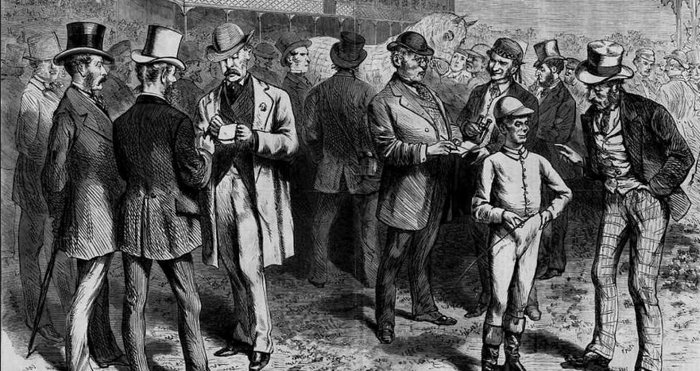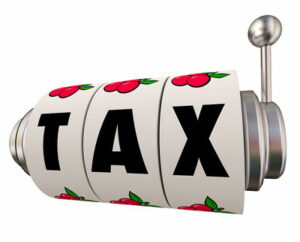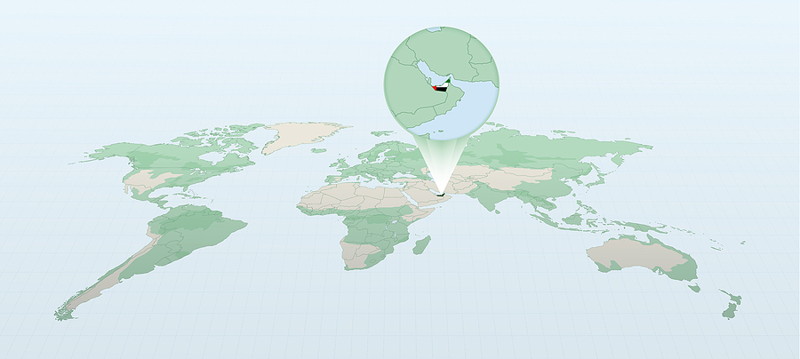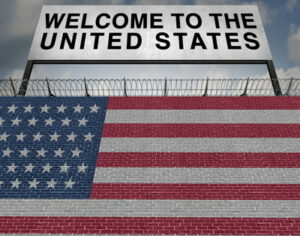 Gambling is a popular pastime and is a huge business. The idea of completely banning it seems entirely fanciful, yet it is something that some critics of the industry would like to see happen. The question is, is that even possible? There is no real-world scenario in which one could feasibly see a gambling ban working, largely thanks to the fact that people enjoy gambling on things. Even if the British government were to ban it in a wider sense, many people would likely turn to black market gambling as an alternative way of doing it. Indeed, history has shown that the black market thrives when prohibition is enforced.
Gambling is a popular pastime and is a huge business. The idea of completely banning it seems entirely fanciful, yet it is something that some critics of the industry would like to see happen. The question is, is that even possible? There is no real-world scenario in which one could feasibly see a gambling ban working, largely thanks to the fact that people enjoy gambling on things. Even if the British government were to ban it in a wider sense, many people would likely turn to black market gambling as an alternative way of doing it. Indeed, history has shown that the black market thrives when prohibition is enforced.
The question then becomes, what do we mean by gambling being ‘totally banned’? Is it a case of it being banned by the government, so that legal gambling can’t take place using a larger company such as a bookmaker or a bingo site, but betting between friends is still ok? Or are we suggesting that if two people went to play golf and one asked the other if they wanted to play for £1 per hole, the person would be expected to shop their friend to the police? Banning something is a slippery slope, which is just one of the reasons why it will never happen in a free society.
Gambling bans do exist in various countries, such as the UAE, Iran, Saudi Arabia and North Korea, although these are often motivated by religion or hard line beliefs and these countries and governments cannot be described as free and democratic. Even in large parts of China gambling is illegal, apart from in certain areas like Macau (hence why people travel there), again, though, this is possible for a state like China due to the way it is governed, in a way that it would not be possible for democratic countries like the UK.
Indeed, we have an example from recent history where the US largely banned gambling online and in the real world outside of select areas, like Nevada, pretty much since the 1970’s. The issue was that some states got to keep gambling and this made them a lot of money. New Jersey wanted some of that action and after a legal dispute it ended up in the US Supreme Court revoking federal prohibitions on gambling, leaving it up to states to decide.
Since that decision in 2018 the US gambling market, online especially, has exploded with nearly half of the states now offering forms of gambling. The US example shows that it is difficult to curtail peoples freedoms in free societies.
What We Can Learn: History Of UK Gambling

If we want to discuss what would happen if the government wanted to ban gambling in the United Kingdom, one of the first places to start is by looking back at the history of the pastime in the country.
For a long time, gambling was simply legal under English common law. After a time, it was feared by the government that it was interfering with military training to have people gambling instead of concentrating on their army duties. As a result, the Suppression of Unlawful Games Act was introduced in 1541 with the aim of prohibiting “Several new devised Games” that caused “the Decay of Archery.”
It said that men under the age of sixty shall have ‘bows and arrows for shooting’, boasting the long title of ‘An Acte for Mayntenance of Artyllarie and debarringe of unlawful Games’. In other words, bows and arrows should be used for archery practice and that was it, certainly ruling out the gambling on hitting targets that had become common practice in the country at the time. The Act was designed to make gambling all but illegal, though it was never actually enforced in any meaningful capacity, largely because of the popularity of gambling.
Indeed, all the Act did was to ensure that gambling debts couldn’t be collected through court action, meaning that people could back out of the debts that they incurred from their betting and the people that had taken their bets couldn’t do anything about it legally. Obviously one of the results of this was that those people used illegal methods to collect their debts. This put people’s safety at risk, but it also meant the bookmakers gained a reputation as being less than hospitable to those that placed bets that they felt couldn’t be trusted.
Would People Turn To Black Markets?
 What we can learn from the history of gambling in the UK is that it was far too popular a pastime for the government to successfully ban it. As a result, it is entirely fair to say that the government looking to ban gambling in the present day wouldn’t result in gambling stopping, but would instead result in people turning to the black market in order to place their bets. Whilst this wouldn’t be what everyone does, it would certainly be the approach that a lot of people would take in order to carry on placing bets on things that they enjoyed.
What we can learn from the history of gambling in the UK is that it was far too popular a pastime for the government to successfully ban it. As a result, it is entirely fair to say that the government looking to ban gambling in the present day wouldn’t result in gambling stopping, but would instead result in people turning to the black market in order to place their bets. Whilst this wouldn’t be what everyone does, it would certainly be the approach that a lot of people would take in order to carry on placing bets on things that they enjoyed.
There are countless issues with black market gambling, not the least of which is the fact that it is an entirely unregulated world. At the time of writing, black market bookmakers are doing things that licensed ones are unable to do, including accepting deposits from credit cards and luring punters in with the promise of unrestricted gambling. Managers are able to actively encourage bettors to wager more and more money, offering bigger bonuses in exchange. Obviously this isn’t good for those with a gambling problem or financial issues.
If legal gambling is banned it doesn’t mean that gambling goes away, it just means that most of the gambling will become illegal but will still take place. The black market bookies that exist in the current climate refer to themselves as not being part of gambling help schemes such as GamStop, so as to encourage those that have attempted to self-exclude to place bets with them instead. The fact that they are unlicensed means that they have no requirement to pay out on wins, nor is there any way that punters using their services can get some sort of recourse if they don’t get money that they’re owed.
The fact that the internet is now global means that it is easier for people to access unlicensed sites, often based in places where they can’t be touched legally. They use mirror sites and all sorts of tricks to stop bodies like the UKGC from blocking them. Any ban on gambling today would be incredibly hard to enforce for those reasons, without high levels of internet control like we see in China. It is not like in the old days where you would have to go to some dodgy underground den to find your black market bookie, people can do it in their own homes today.
The majority of people are in favour of a total ban on gambling adverts before 9pm in the United Kingdom, with three-quarters of respondents to a poll on the matter believing that restrictions should at least be slightly tighter. Just because people feel that such a ban would be good for the protection of young people and the most vulnerable, that doesn’t mean that people would therefore be in favour of betting itself being banned. After all, though problem gambling is obviously a major issue, most people are able to bet without it ever becoming a problem.
Gambling Taxes
 We know, then, that a gambling ban would result in punters turning to the black market to place bets with unscrupulous bookmakers. In one sense, this alone should be enough to dissuade any government from trying to introduce a complete ban on legal betting, but the truth of the matter is that governments rarely care about the people that they’re supposed to look after.
We know, then, that a gambling ban would result in punters turning to the black market to place bets with unscrupulous bookmakers. In one sense, this alone should be enough to dissuade any government from trying to introduce a complete ban on legal betting, but the truth of the matter is that governments rarely care about the people that they’re supposed to look after.
One of the biggest concerns of the government is the ability to make money in taxes, which feeds into the coffers and allows them to do other things that will benefit them. When it comes to betting and gaming, the British government raises about £3 billion per year.
This comes from all sorts of different places, such as more than £800 million from lotteries, In excess of £700 million from machine games duty and £500 million-plus thanks to the general betting duty. Bingo, pools betting and gaming also raises a lot of money, with the Remote Gaming Duty bringing in in the region of £450 million. Though on-course betting isn’t liable to any of those duties, the Horseracing Levy Board brings in more than £100 million a year.
The simple fact is that that is far too much money for the government to ever consider giving it up, especially if there isn’t a sense of being able to bring the money in from elsewhere. Given that the government will be aware of the fact that people will still gamble, just using illegal betting sites to be able to do so, the question becomes about why the government would actively choose to miss out on the tax money that comes with betting being a legal enterprise. It would be silly to remove the legality of the activity for no tangible benefit.
Job Losses
 Another factor that the government would need to consider before moving to ban gambling would be the number of lost jobs that would come about as a result. By 2019, around 46,000 people worked in the betting industry in the United Kingdom, all of whom would immediately become unemployed if gambling was banned in the country.
Another factor that the government would need to consider before moving to ban gambling would be the number of lost jobs that would come about as a result. By 2019, around 46,000 people worked in the betting industry in the United Kingdom, all of whom would immediately become unemployed if gambling was banned in the country.
Whether it be betting, bingo, casinos or arcades, there are numerous different areas of the industry that involve jobs for workers. That is to say nothing of the likes of the United Kingdom Gambling Commission, which also employs people tangentially.
If they lost their jobs, the government would not only need to cope with the loss of the roughly £3 billion per year in taxes that are taken from the industry, it would also need to support many of those who became unemployed as a result. It is a financial burden that would be huge, only for illegal gambling companies to make the money that the real ones could be making and being taxed on.
The combination of factors alone would make it a non-starter for most governments, let alone the fact that it hasn’t worked in the past or elsewhere.
What We Can Learn From Other Countries

We know that banning gambling wouldn’t result in people stopping placing bets, but rather turning to illegal sources in order to place those wagers. We also know that, historically, banning gambling in the UK didn’t work. The question is, has it worked anywhere else? There are examples that we can turn to for evidence of gambling bans being enforced, but were they successful? Almost all Islamic countries have prohibited every type of gambling, such as the United Arab Emirates. Players can serve up to two years in jail for breaking the ban there.
The problem is, the internet is something of a Wild West that is difficult to control definitively. The Telecommunications Regulatory Authority monitors internet usage and those that are found to have used online resources to gamble can fall foul of the laws in the UAE. Thanks to the likes of Virtual Private Networks, however, knowing that this is being done isn’t always easy, so the government often turns a blind eye to online gambling in the country. Given people are prosecuted for doing it, it is clear that it still takes place in an illegal manner.
In some countries, such as Cambodia, gambling is prohibited. It has been since the signing of the Suppression of Gambling Act in 1996, but there are exceptions. There are as many as five state lotteries, for example, as wells casinos that cater to tourists that visit the country. This means that the citizens of the country are unable to gamble, but those from outside are allowed to. Gambling wasn’t completely ruled out, therefore, and betting still takes place. Similarly, North Korea bans its own citizens from betting but tourists are allowed to in certain circumstances.
The Places That Tried By Gave Up
 There are countries where restrictions on gambling were put in place, only for the government to give up on them when it became clear that they weren’t working. Until relatively recently, the vast majority of forms of gambling were banned in Japan, for example. Even then, though, there was a loophole that allowed Pachinko to take place because of the cultural and historical significance of the game. Nowadays, several racetracks are run either by the government or by the Japan Racing Association, with other sports betting being permitted and land-based casinos allowed.
There are countries where restrictions on gambling were put in place, only for the government to give up on them when it became clear that they weren’t working. Until relatively recently, the vast majority of forms of gambling were banned in Japan, for example. Even then, though, there was a loophole that allowed Pachinko to take place because of the cultural and historical significance of the game. Nowadays, several racetracks are run either by the government or by the Japan Racing Association, with other sports betting being permitted and land-based casinos allowed.
In the United States of America, an attempt to restrict gambling was introduced thanks to the Unlawful Internet Gambling Enforcement Act that was signed in 2006. The main thrust of the UIGEA was to prevent businesses from accepting payments that were connected to the participation of ‘another person in a bet or wager that involves the use of the Internet and that is unlawful under any federal or state law’. Even then, fantasy sports were excluded, in addition to skill games and legal intrastate and intertribal gaming, provided certain criteria were met, whilst state lotteries were also excluded.
As you will no doubt be aware, the Act was all but overturned. Nowadays each state can decide for itself what to do about betting and gambling, rather than it being banned on a national level. Even when the US did try to ban gambling, it was still legal in certain places and areas such as Las Vegas. In other words, a complete ban was never even attempted in the country. We know, then, that even when a country attempts to limit gambling’s influence, it doesn’t last for very long before a decision is taken to overturn the limitations and allow gambling to take place.